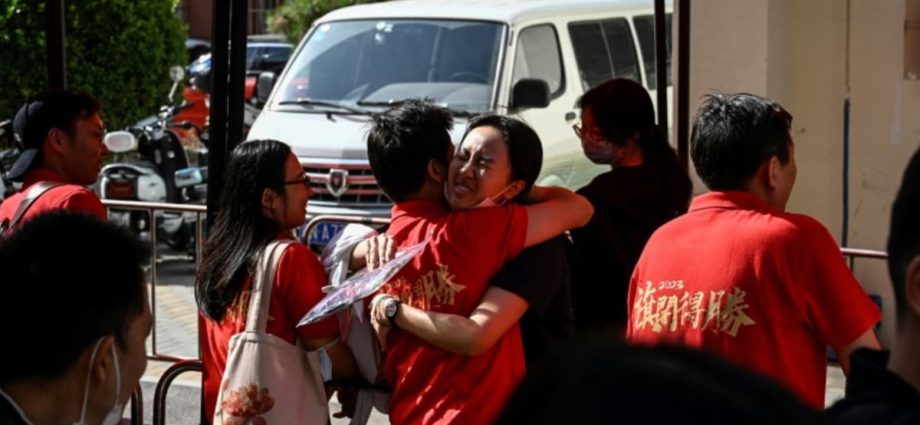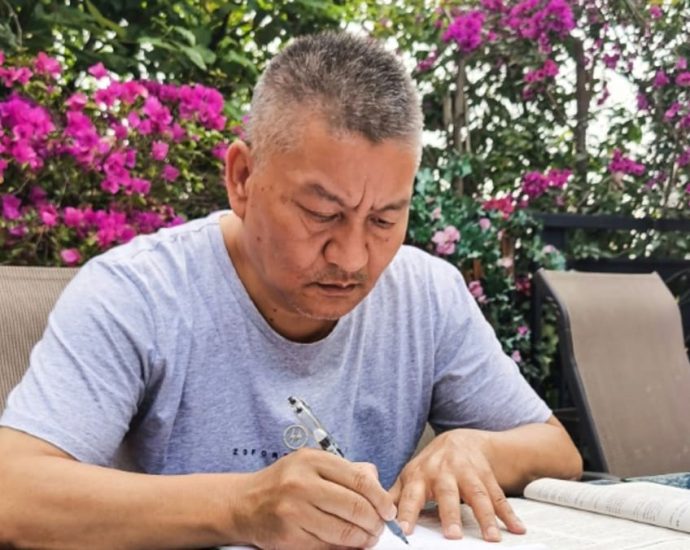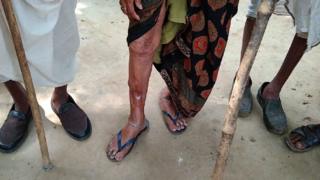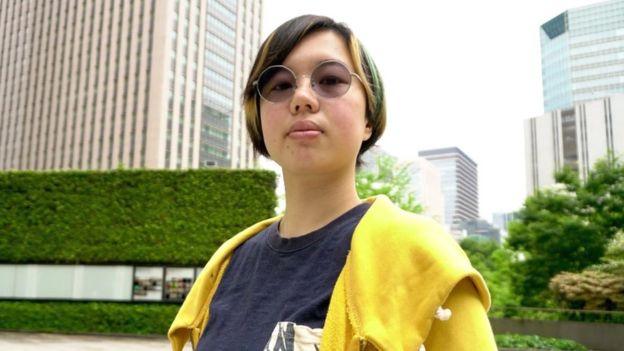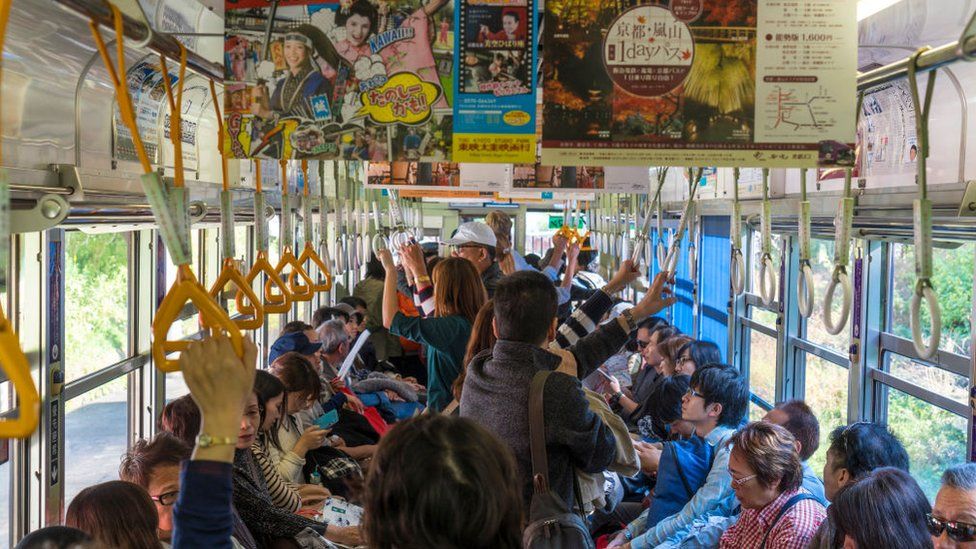Millions of Chinese students sit gruelling college entrance exams
“I STRUGGLED” Testing high school students on their Chinese, English, mathematics and other science or humanities subjects of their choice, the exams are critical to landing coveted spots at China’s top universities. Many parents shell out hundreds of dollars a month on cram schools or hire graduate students to sitContinue Reading
Grab driver fined for operating as taxi after ferrying street-hail passengers

SINGAPORE: Despite the fact that she was licensed only to operate as a private-hire driver and not as a taxi driver, a woman picked up two passengers who flagged down her vehicle.
The vehicle was later involved in an accident, and the case came to court with the judge meting out a fine of S$2,300 (US$1,706) and a driving ban of 12 months.
These were for two charges that the Grab driver claimed trial to but was convicted of: For using a chauffeured private-hire car without a valid licence authorising her to use it as a taxi, and for using a private-hire car for gain or reward as a taxi public service vehicle when there was no related insurance policy in force.
According to a judgment published on Wednesday (Jun 7), Nandha Sharm Nair was driving her private-hire car on the night of Jan 27, 2022.
Two men were trying to flag down a taxi around MacPherson Road, and Nair, 45, stopped her car in front of them.
She agreed to ferry the men to Beatty Lane, which was about 15 minutes away, even though neither of the men had made a booking.
When they got to Beatty Lane, one of the men offered a S$50 note to Nair, asking for change. After negotiating, Nair collected S$25 from him.
While Nair was negotiating the price with one of the men, the other passenger alighted first and retrieved his vehicle. He then accidentally hit Nair’s car with his vehicle.
Court documents did not reveal how Nair’s offences were uncovered, but they did state that the passenger who caused the accident was investigated by the traffic police shortly after.
He was not ultimately convicted of any drink driving offence, despite Nair’s allegation that both her passengers could have been drunk at the time.
According to the Road Traffic Act, a vehicle cannot be used as a public service vehicle unless there is a valid licence authorising such use.
The main distinction between a private-hire car and a taxi is that a taxi can “ply for hire” while a private-hire car cannot, according to the judgment.
According to past case law, a vehicle moving along the roads looking for fares and stopping whenever it is hailed would clearly be plying for hire, said District Judge Soh Tze Bian.
“On the facts of this case, another useful consideration is to enquire whether there was a booking made before the trip, whether through a ride-hailing app or equivalent booking platform,” he said.
“If such a prior booking existed before the driver had any interaction with the prospective passenger, the vehicle would not be said to be plying for hire.”
In her defence, Nair said she had a booking that ended up being cancelled at the location where the two men had been standing by the side of the road.
She said she agreed to drive them “purely on compassionate grounds”, as the men said they had been waiting for almost an hour without a ride.
She asserted that there was no discussion of fees or monetary benefits when the men boarded her vehicle or during the journey, therefore she was not using her vehicle as a public service vehicle.
ACCUSED NOT A CREDIBLE WITNESS: JUDGE
Judge Soh agreed with the Land Transport Authority prosecutors that Nair was not a credible witness. He found her evidence “self-serving” and was seeking to exculpate herself from any liability for the offences.
He found that Nair had not ferried the two men out of compassion. He said Nair had stopped her vehicle in the first place to check on her cancelled booking, which suggests she was likely looking for passengers.
“She had obviously decided to pick up (the two men) as a replacement for her previous cancelled booking,” said Judge Soh.
He said it was clear that Nair had used the vehicle to ply for hire, without possessing a taxi public service vehicle licence.
“Taxis are regulated differently from private-hire cars and are subject to stricter standards. For instance, taxis undergo more frequent inspections and taxi drivers undergo more rigorous training,” said the judge.
“As such, a private-hire car should not be performing (street-hail) functions that only taxis are permitted to carry out. This is in the interest of safety, for both the driver and the passengers.”
He said Nair’s only mitigating factor was that she had no prior convictions.
For using a private-hire vehicle as a taxi without a valid licence, she could have been jailed for up to six months, fined up to S$3,000, or both.
For using a private-hire car for gain or reward as a taxi public service vehicle, she could have been jailed for up to three months, fined up to S$1,000 and banned from driving for 12 months.
Self-made millionaire sits China’s university exams for 27th time
BEIJING: Among the millions of fresh-faced high schoolers sitting in China’s dreaded “gaokao” college entrance exam on Wednesday (Jun 7), Liang Shi sticks out like a sore thumb – a grey-haired, self-made millionaire stubbornly taking the test for the 27th time. Liang, 56, is no fool. He worked his wayContinue Reading
Meet the 9-year-old who picked up Teochew opera at age 3 by memorising everything

A Teochew opera artiste needs to be well-versed in martial arts, acrobatics, acting and singing. Sophie’s vocal prowess belies her small stature, but the real show-stopper, for me, was her delivery in Teochew, which she had painstakingly perfected through rote memorisation since the age of three.
“When I first started, it was a little bit difficult. I don’t usually speak Teochew, and it was a new language for me to learn. The teacher would give us the script, and I would write the pinyin down. When I went home, I would memorise the lines.”
At three and a half years old, Sophie performed for the first time in the Teochew opera classic, Tao Hua Crosses The River. As if going onstage before a live audience wasn’t daunting enough for a young child, she had to sing, act and dance – the whole nine yards.
“It took me half a month to memorise the lines for a four-minute show. When I was first on stage, I was really nervous because I thought I would do something wrong. But I did really well, actually,” she said. Her longest performance to date? A 30-minute show that took nearly half a year to master.
LIFE LESSONS FROM TEOCHEW OPERA
When Sophie started out, all the props were bigger than her. But just as stage fright dissipated with one performance after another, Sophie also grew accustomed to the challenges of being a young Teochew opera artiste.
“When I first put the headdress on, I was like, oh my god! It’s so heavy! But after a while, I got used to it. I don’t feel like it’s heavy anymore.”
Lisa puts Ayutthaya back on radar for TAT

The Tourism Authority of Thailand (TAT) has jumped at the chance to promote tourism in Ayutthaya after Lalisa “Lisa” Manoban from the South Korean girl group, Blackpink, posted photos while visiting the old city of the World Heritage site on her Instagram account on Monday.
The starlet’s IG account (@lalalalisa_m) has 94.5 million followers. She visited several ruins and temples in Ayutthaya after the Blackpink World Tour [BORN PINK] Bangkok gigs on the last weekend of May. During her trip with close friends, they donned traditional dress, short-sleeve blouses and indigo tie-dyed, mud-fermented woven phasin, a long fabric wrapped around the waist like a skirt.
Her photos will inspire fans to visit the same spots and don traditional clothing, said Thapanee Kiatpaiboon, TAT deputy governor for international marketing.
Ms Thapanee, who will become the TAT governor in September, said Lisa’s IG post serves as a form of soft power to promote Thai tourism, culture and products.
She said the TAT has already launched a campaign to let Lisa’s fans know more about the places she visited, including Wat Na Phra Meru, Wat Mahathat, Wat Mae Nang Pluem and Kaow Laor Restaurant, which is listed in the Michelin Guidebook to Phra Nakhon Si Ayutthaya.
“Lisa is a high-profile online influencer. Her Ayutthaya trip post will have a positive impact on the tourism industry and help spur the economy of local businesses,” she said.
Ms Thapanee cited the indigo tie-dyed woven cloth as an example. She said the fabric was a well-known product of Udon Thani, and the cloth sold like hotcakes after Lisa’s IG posts.
The Sustainable Arts and Crafts Institute of Thailand (SACIT) praised Lisa for promoting it as a form of “soft power”.
80 charges await ‘Aem Cyanide’

Alleged serial killer Sararat “Aem Cyanide” Rangsiwuthaporn will be hit with at least 80 more criminal charges for her actions, according to deputy national police chief Pol Gen Surachate Hakparn.
Pol Gen Surachate, who is leading the investigation into the allegations against Ms Sararat, said on Tuesday that on top of the 15 premeditated murder charges, Ms Sararat has been charged with fraud.
Authorities are preparing to charge Ms Sararat with a slew of other crimes, which include poisoning, misuse of a controlled substance, concealing a criminal act and theft.
He said police would be ready to press 40 charges against Ms Sararat by the end of the week.
When asked about the cyanide Ms Sararat bought, Pol Gen Surachate said investigators have managed to track down her supplier based on the information that could be gathered from its package.
Investigators were also able to narrow down their probe to focus on eight bottles using the information, he said, noting they had been looking at 700 bottles before.
Pol Gen Surachate said she did not buy the cyanide directly from the factory, but from a retailer who will also be investigated by the police.
Ms Sararat was arrested on April 25, when she was four months pregnant. Her arrest followed a complaint filed by the mother and elder sister of Siriporn “Koy” Khanwong, 32, of Kanchanaburi, one of her 15 alleged victims.
Most victims were linked to the suspect through private saving schemes and car financing deals. All the deceased victims were found to have been with Ms Sararat right before they died.
Uttar Pradesh: Why did it take India 42 years to judge a crime?
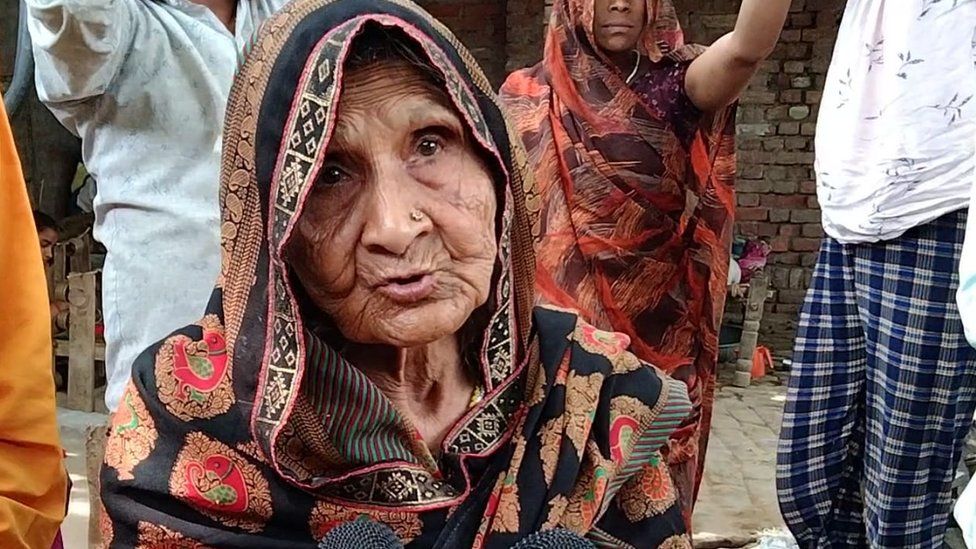 Jitendra Kishore
Jitendra KishoreLast week, a 90-year-old Indian villager was sentenced for life in prison for the murder of 10 people in a caste crime that took place 42 years ago. Families of the victims say the court judgement has come far too late to hold any meaning for them and legal experts say this is a classic case of “justice delayed, justice denied”.
The evening of 30 December 1981 is etched in the memory of the oldest residents of Sadhupur village in the northern state of Uttar Pradesh.
“A group of men entered the compound of my house around 6:30pm and started firing,” says Premvati. She’s not sure about her age but believes she’s around 75 years.
“They didn’t ask me anything, they just began spraying bullets at us,” she says, adding that within minutes, three of her children – sons 10 and eight years old and a 14-year-old daughter – lay dead around her.
To photographers and cameramen who visited the village after the court order, Premvati showed her right leg where she had received a bullet injury. The wound has healed, but the scar remains.
Her children were among the 10 members of the Dalit community (formerly untouchables) who were killed that evening. Premvati was among two women who were injured.

Last Wednesday, Judge Harvir Singh of the district court in the town of Firozabad sentenced the only surviving accused Ganga Dayal, a member of the Yadav caste, to life imprisonment. Dayal was also ordered to pay a fine of 55,000 rupees ($668; £533) – if he failed to pay up, he would have to spend an additional 13 months in jail.
The judgement noted that nine of the 10 accused had died during the course of the trial. Lawyer Rajeev Upadhyay who represented the government in court told me that many of the prosecution and defence witnesses also died in the interim.
With more than four decades passed between crime and punishment, the contours of the case have become rather fuzzy.
Premvati and other Dalit villagers insist that their families had no enmity with anyone. But Mr Upadhyay said it was believed that relations between the castes had soured after some Dalits had complained about a ration shop owned by a member of the Yadav caste and that led to the violence.
The crime had made headlines at the time and villagers said they were visited by the then prime minister Indira Gandhi and the state’s chief minister Vishwanath Pratap Singh who had promised them justice.
Senior leader from the opposition Bharatiya Janata Party Atal Bihari Vajpayee – who later served as India’s prime minister – had marched to the village to protest against the murders.
“He said he couldn’t bring our dead back to life, but promised to help us get justice,” Premvati said, adding that the villagers found out about the conviction from journalists who came to ask for their response to the court verdict.
“Only God knows if this is justice,” she told them.
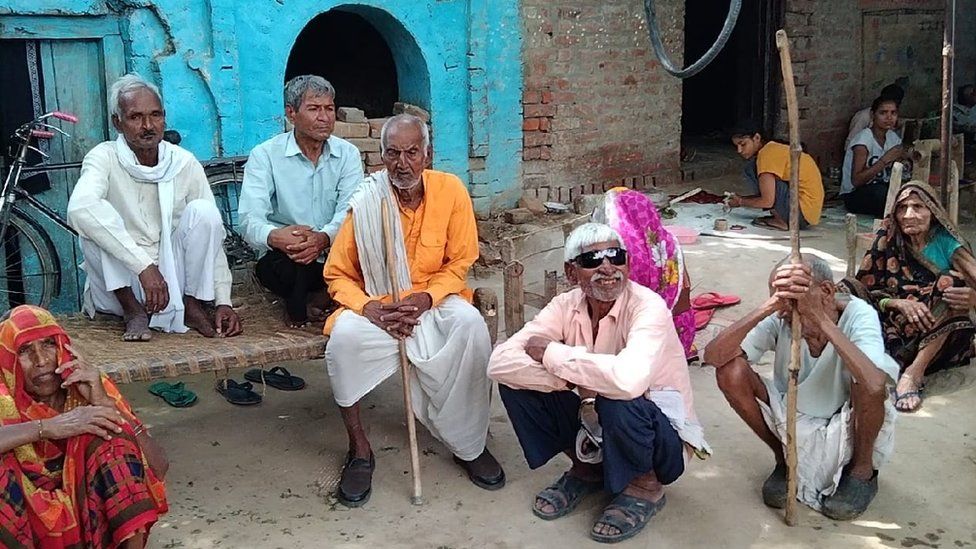
Maharaj Singh, Premvati’s much younger neighbour who also lost family members and grew up hearing stories of “that evening’s carnage”, said “we appreciate that we have finally got justice, but it didn’t come at the right time. We would have been happier if we had received justice in time”.
“It took the courts 42 years to deliver justice. If a conviction had come in five-six years, then our elders would have died in peace,” he added.
Mr Upadhyay says the case took so long to come to conclusion because at the time of the murders, the village where the crime took place was part of a district called Mainpuri. But in 1989, it became a part of the newly-created Firozabad district.
The case files lay forgotten in Mainpuri until 2001 when it was moved to the Firozabad court on orders from the Allahabad high court.
The hearings, Mr Upadhyay says, began only in 2021 as part of a government drive to clear out the backlog in courts and conclude old cases on an urgent basis.
“The government and the judiciary are trying to send a message to the public that law will catch up with you if you commit a crime,” he says.
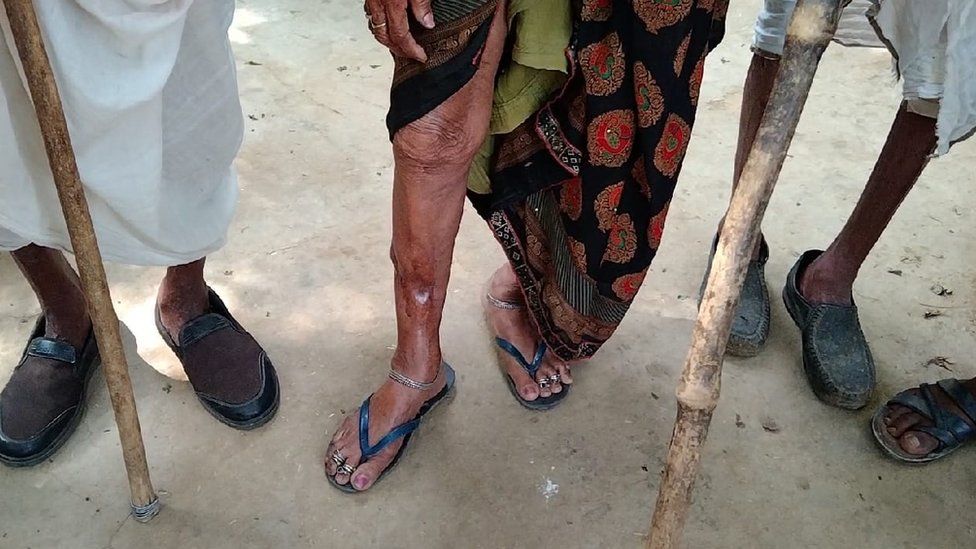
Lawyer Akshat Bajpai, however, says justice has to be timely.
“This is indeed a case of justice delayed, justice denied. People can appreciate a delay of two-three years, but 40 years?”
Mr Bajpai says “the state has the responsibility to deliver timely justice especially to people like Premvati as they are Dalits who are among the most marginalised people” in the country.
“It’s the failure of India’s criminal justice system that the victims and their families had to live in agony for 42 years,” he adds.
This is not the only court case that has taken so long to come to fruition. Indian criminal justice is known for being tardy and many citizens say they resent the fact that court cases often go on for years, even decades.
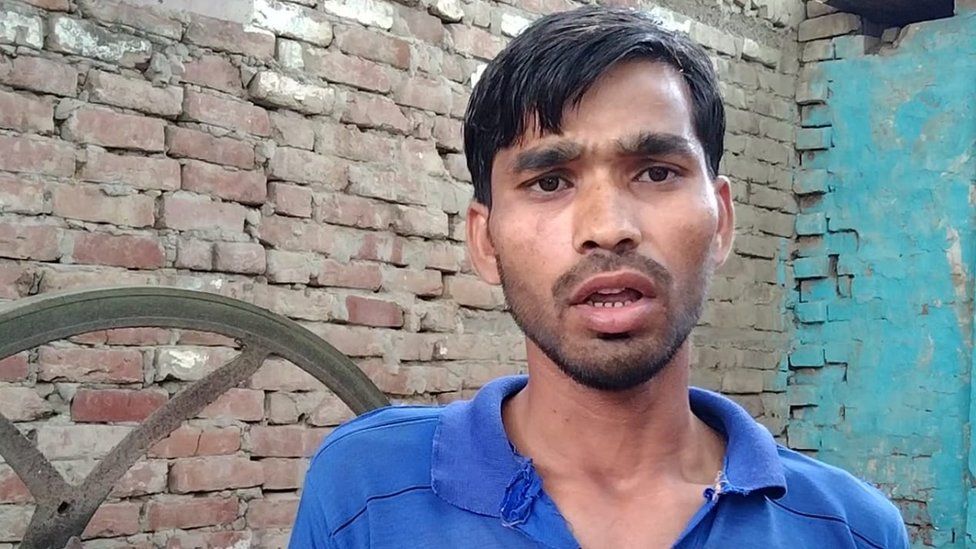
This has led to a massive backlog of unresolved cases. In February, the government informed the parliament that there were nearly 50 million pending cases across Indian courts.
MA Rashid, an expert on Indian criminal law and founder of Live Law website, says the biggest cause for delay is the lack of adequate number of judges.
“The judge to people ratio in India is very low and the load per judge is humungous. So trials take a long time to conclude.”
Mr Rashid also blames “archaic procedures” which are time consuming and delay the examination of witnesses – for instance, a judge still has to write down with hand the testimonies despite the advent of technology.
Appeals, he says, in the high court usually take at least five to 10 years to get listed for a final hearing – and then an equal number of years in the Supreme Court.
“So cases where convicts get acquitted after 20 or 30 years at the appellate stage are also not uncommon in India,” he adds.
BBC News India is now on YouTube. Click here to subscribe and watch our documentaries, explainers and features.

Read more India stories from the BBC:

Pita gets a head start on city problems

Move Forward Party (MFP) leader and prime minister aspirant Pita Limjaroenrat has promised to work closely with City Hall to tackle 21 of Bangkok’s major problems, including traffic congestion, flooding and air pollution.
The proposal was submitted to him during a meeting on Tuesday with Bangkok governor Chadchart Sittipunt. Also present were most of the MFP’s 32 MPs-elect for Bangkok as well as the Bangkok councillors, said Mr Chadchart.
The governor described his meeting with the leader of the MFP, which is leading the formation of a new coalition, as a good start for smooth cooperation between the Bangkok Metropolitan Administration (BMA) and the likely next government.
The MFP won 32 out of the 33 seats in the capital.
Mr Pita, meanwhile, said working seamlessly with the BMA is something he strives for.
“I have received suggestions which the governor alone couldn’t get done effectively, and he is asking for cooperation from our 32 MPs-elect,” he said.
In tackling the particulate matter 2.5 (PM2.5) dust problem, which involves controlling emissions from vehicles, for instance, the BMA only has authority over four-wheeled cars, while the power to control PM2.5 emissions from larger vehicles lies with related ministries, said Mr Pita.
At Tuesday’s meeting, the MFP and the BMA agreed to set up a so-called Bangkok Transition Team to prepare the ground for turning agreements reached between them into action, said Mr Pita.
The MFP also informed Mr Chadchart about its intention to push 45 new laws, which also concern the BMA, through parliament. These include legislation that would mandate, for the first time, the election of Bangkok’s district chiefs, according to the MFP leader.
In related news, Mr Chadchart has been urged by the MFP’s Bangkok councillor for Yannawa district to transfer and formally investigate four BMA officials at Yannawa district office accused of manipulating the office’s bidding procedure over rights to operate shops at schools in the district.
Mr Chadchart, however, admitted that at this point in time, there was no evidence to prove the alleged malfeasance had taken place.
“A probe is needed to find out more about the alleged misconduct to ensure fairness for all sides,” the governor said.
Putthipat Thanyathammanon, the Bangkok councillor who is calling for the investigation, said he had received information about the alleged misconduct from a number of members of the public as well as officials working on the premises.
Prayut concedes his time as PM is over

Prime Minister Prayut Chan-o-cha made remarks on Tuesday suggesting he sees little opportunity for him returning to power for another term.
Gen Prayut was responding to reporters’ questions about his political plans as the bloc led by the Move Forward Party works to form a new coalition government.
He seemed amused when reporters asked about the possibility of smaller parties nominating him as prime minister if the MFP or Pheu Thai — the winner and first runner-up in the general election, respectively — fail to cobble together a coalition government.
“Don’t think that far ahead,” Gen Prayut said.
Pressed on the prospects of the coalition materialising as planned, Gen Prayut — chief strategist of the UTN Party — said he was not involved and that his focus was on working as part of the caretaker government.
He said he was not afraid of being investigated after the change of power.
Bhumjaithai leader Anutin Charnvirakul, in his first media interview since the May 14 election, said on Tuesday he never held talks or had any agreement with ousted former prime minister Thaksin Shinawatra amid rumours of a “secret deal”.
He insisted his recent meeting with Srettha Thavisin, one of Pheu Thai’s three prime ministerial candidates, at a football match in the UK had nothing to do with politics.
A photo of the pair circulated last week after former massage parlour tycoon Chuvit Kamolvisit made a Facebook post about their allegedly secret negotiations if the MFP failed to gather more than half of the House seats required to form a government. According to Mr Chuvit, the secret deal was called “come home”, a reference to Thaksin, who recently announced his intention to return to Thailand next month.
Mr Anutin said Bhumjaithai stood by its word that the election winner should be the first to lead any efforts to put together a coalition government when asked if the MFP-led coalition would take shape.
He declined to discuss the prospect of the other camp forming a rival coalition, saying the caretaker government would do its best and adhere to political etiquette until a new government was sworn in.
The Bhumjaithai leader said the party would stick to its stance when it came to the prime minister vote when asked if the party’s MPs would support MFP leader Pita Limjaroenrat in the top job.
Asked if the party had made an assessment of the political situation, he said it was still waiting for the Election Commission to endorse the election results officially.
No means no: Japan is set to redefine rape in landmark legal reform
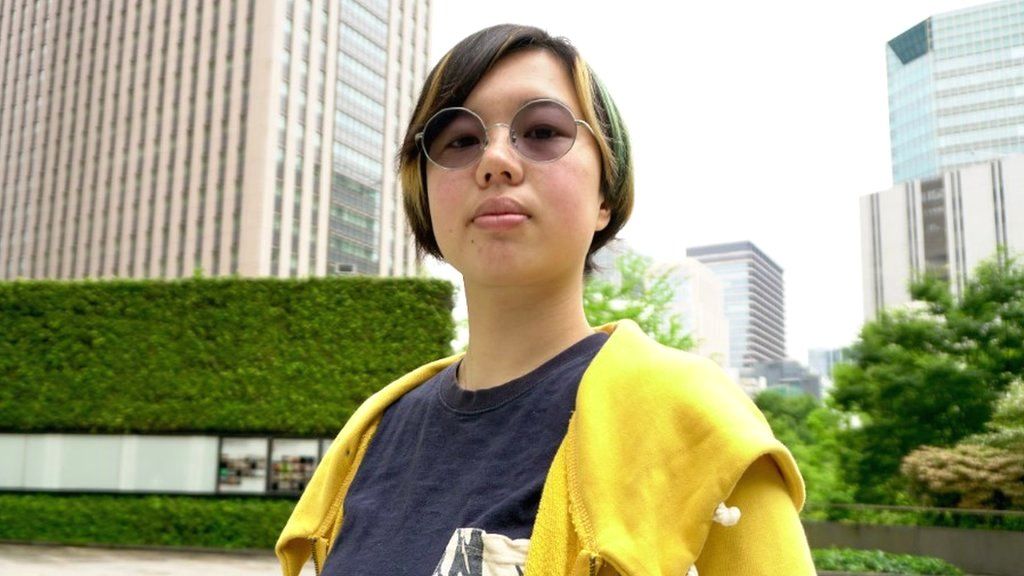 BBC News / Tessa Wong
BBC News / Tessa WongWarning: this article contains details that some readers may find distressing.
Days after their rape, Megumi Okano says, they already knew the attacker would get away scot-free.
Megumi, who uses they as a personal pronoun, knew the man who did it, and where to find him. But Megumi also knew there would be no case, because Japanese authorities were not likely to consider what happened as rape.
So the university student decided not to report the incident to the police.
“As I couldn’t pursue [justice] that way, he got to live a free and easy life. It is painful to me,” Megumi says.
But change may be coming. The Japanese parliament is now debating a landmark bill to reform the country’s sexual assault laws, only the second such revision in a century.
The bill covers a number of changes, but the biggest and most significant one will see lawmakers redefine rape from “forcible sexual intercourse” to “non-consensual sexual intercourse” – effectively making legal room for consent in a society where the concept is still poorly understood.
Current Japanese law defines rape as sexual intercourse or indecent acts committed “forcibly” and “through assault or intimidation”, or by taking advantage of a person’s “unconscious state or inability to resist”.
This is at odds with many other countries which define it more broadly as any non-consensual intercourse or sexual act – where no means no.
Activists argue that Japan’s narrow definition has led to even narrower interpretations of the law by prosecutors and judges, setting an impossibly high bar for justice and fostering a culture of scepticism that deters survivors from reporting their attacks.
In a 2014 Tokyo case, for instance, a man had pinned a 15-year-old girl to a wall and had sex with her while she resisted. He was acquitted of rape as the court ruled his actions did not make it “extremely difficult” for her to resist. The teenager was treated as an adult because the age of consent in Japan is only 13 years – the lowest among the world’s richest democracies.
“The actual trial processes and decisions vary – some defendants were not convicted even if their acts were proven to be non-consensual, as they did not meet the case of ‘assault or intimidation’,” says Yuu Tadokoro, a spokesman for Spring, a sexual assault survivor group.
It’s why Megumi says they did not go to the police after the assault by a fellow university student.
According to Megumi, the two of them were watching TV together when he began making sexual advances towards Megumi, who said “No”.
Then, he attacked. The two “wrestled” for a while, says Megumi, before Megumi froze and gave up resisting. This well-documented response to an attack is sometimes not covered by the current law, according to activists.
In the days afterwards Megumi – a law student – pored through the penal code and case precedents and realised what had happened would not meet court standards of “assault and intimidation”.

They had also heard of survivors experiencing victim blaming and “second rape” – where survivors are re-traumatised when encountering insensitivity from the police or hospital staff – in Japanese investigations.
“I did not want to go through that process [of an investigation] for my scarce hope of getting justice. That’s why I didn’t go to the police. I wasn’t even sure whether my report would be accepted,” they say.
Instead, Megumi says, they went to the university’s harassment counselling centre, which launched an investigation and ruled the attacker had committed rape.
When approached by the BBC, the centre refused to comment on the case, citing confidentiality.
By the time the investigation concluded, the attacker had graduated – so he suffered little consequences apart from receiving a warning, says Megumi. “I felt disappointed that I could not make this person properly regret his action through criminal procedure.”
A clamour for change
Megumi is not alone. In Japan only a third of cases recognised as rape result in prosecutions, slightly lower than the general criminal prosecution rate.
But there has been a growing public clamour for change.
In 2019, the Japanese public was enraged when a series of four sexual assault cases, each resulting in the acquittal of the alleged attacker, emerged within a month.
In one case in Fukuoka, a man had sex with a woman who’d passed out drunk – which could be considered as sexual assault in other places. The court heard the woman took part for the first time at a regular drinking session at a restaurant.
According to reports, the man said he thought “men could easily engage in sexual behaviour” at the event, which was known for its sexual permissiveness, and others who witnessed the incident did not stop him. He also assumed the woman gave consent because at one point during intercourse she had opened her eyes and “uttered noises”.
In another case in Nagoya, where a father had sex with his teenage daughter repeatedly over many years, the court doubted he had “completely dominated” his daughter because she went against her parents’ wishes in picking a school to attend, even though a psychiatrist testified she was generally psychologically incapable of resisting her father.
Following the public outcry, most of these cases were re-tried and the attackers were found guilty. A nationwide campaign, known as the Flower Demo, was launched by activists to show solidarity with sexual assault survivors.
Activists say this, along with the burgeoning #MeToo movement and journalist Shiori Ito’s landmark victory, helped to spur the national conversation on sexual assault and moved the needle on legal reform.
As part of the redefinition of rape, the new law explicitly sets out eight scenarios where it is difficult for the victim to “form, express, or fulfil an intention not to consent”.
They include situations where the victim is intoxicated with alcohol or drugs; or subject to violence or threats; or is “frightened or astonished”. Another scenario appears to describe an abuse of power, where the victim is “worried” they would face disadvantages if they do not comply.
The age of consent will also rise to 16 years, and the statute of limitations will be extended.
Some rights groups have called for more clarity on the scenarios, saying they are too ambiguously worded. They also fear that they make it more difficult for prosecutors to prove the charges. Others have said the statute of limitations should be extended even further, and that there should be more protection for survivors who are minors.
Nevertheless, if passed, the reforms would mark a victory for those who have long lobbied for change.
“The very fact that they are changing even the title of this law, we are hoping that people will start this conversation in Japan on: What is consent? What does non-consent mean?” says Kazuko Ito, vice-president of the Tokyo-based Human Rights Now.
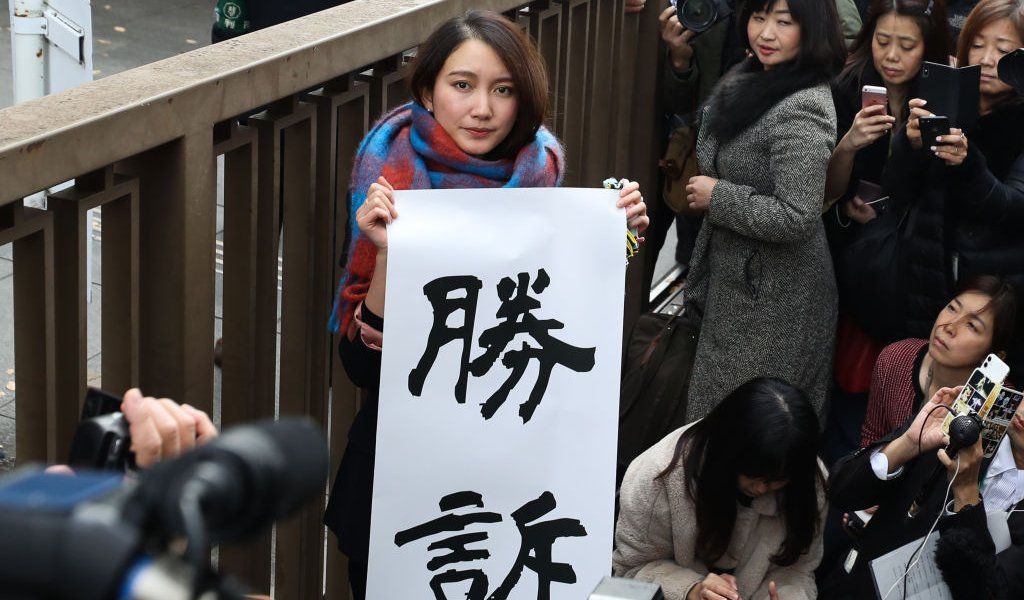
But time is running out. The upper house of the Diet, Japan’s parliament, must pass the new law by 21 June, but it is currently embroiled in a debate over immigration.
Missing that deadline would throw the sex assault reforms into uncertainty. Activists last week denounced the delay as “unacceptable” and called on lawmakers to take action immediately.
Reshaping ideas of sex
But the reforms address only one part of the problem, say activists, whose call for change stretches well beyond the courtroom.
Sexual assault is still a taboo subject in Japan and has gained national attention only in recent years in the wake of high-profile cases such as Shiori Ito’s court battle, former member of the Self Defence Force and sexual assault survivor Rina Gonoi‘s public statements, and the Johnny Kitagawa expose.
Part of the problem, Kazuko Ito says, is that generations of Japanese have grown up with “a distorted idea of sex and sexual consent”.
On the one hand, sex education is usually taught in a veiled and modest way, and consent is hardly touched upon. And yet, Ms Ito says, Japanese children have easy access to porn where an all too common trope is of a woman enjoying having sex against her will.
Japan should offer more financial and psychological support for sexual assault survivors, says lawyer and rights advocate Sakura Kamitani.
But the attackers should also receive help, she adds. “Sex crimes have such a high recidivism rate, we must focus on prevention, otherwise there would be more and more victims.”
But the more important task at hand now, activists say, is ensuring the reforms are passed and enacted, encouraging survivors to report cases.
“If this becomes a superficial change and doesn’t actually save victims, it would be devastating to people,” says Ms Ito.
Megumi says they would consider reporting their attack to the police if the law changes – but not immediately.
“I kind of succeeded in settling my feelings already. I think it is too hard to put myself into that serious position of the ‘first penguin’,” they say, using a Japanese term for the first person to take the plunge into something new.
Instead Megumi, who identifies as gender-fluid, is focusing on campaigning for sexual assault survivors and sexual minority rights, and hopes to start a law firm to help these groups.
“I am relieved that I now see some hope. Many are starting to realise that the current situation we are in is distorted and wrong.
“I believe things are going to change faster and more significantly than we think, if everyone joins in and works together. My message [to everyone] is: ‘If you think something is wrong, let’s change it together.'”
If you are affected by the issues in this story you can contact the BBC Action Line.
Related Topics
-
-
18 December 2019
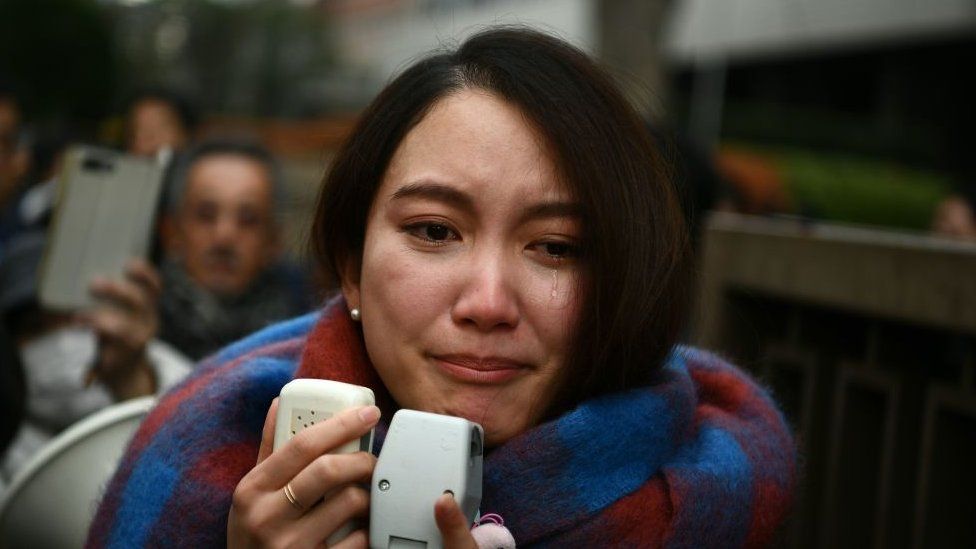
-
-
-
20 February
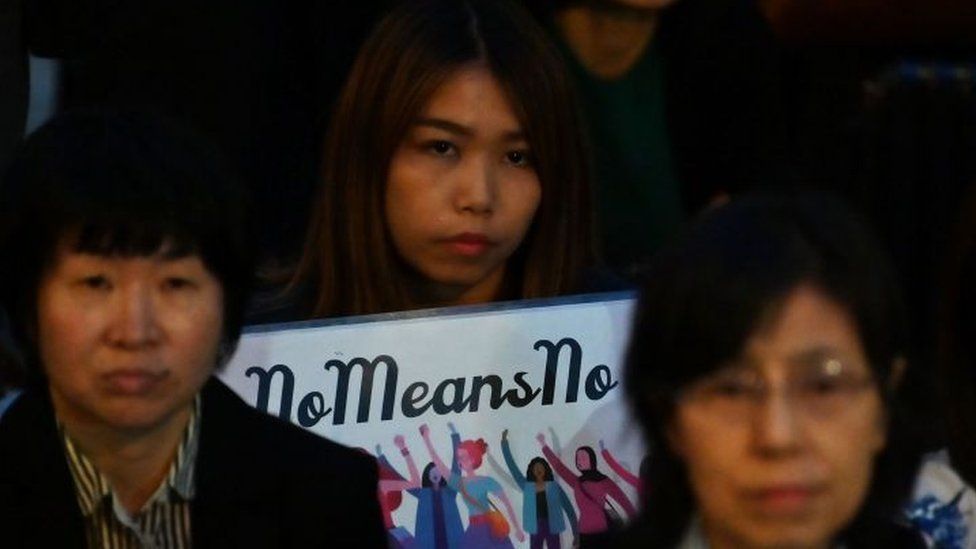
-

